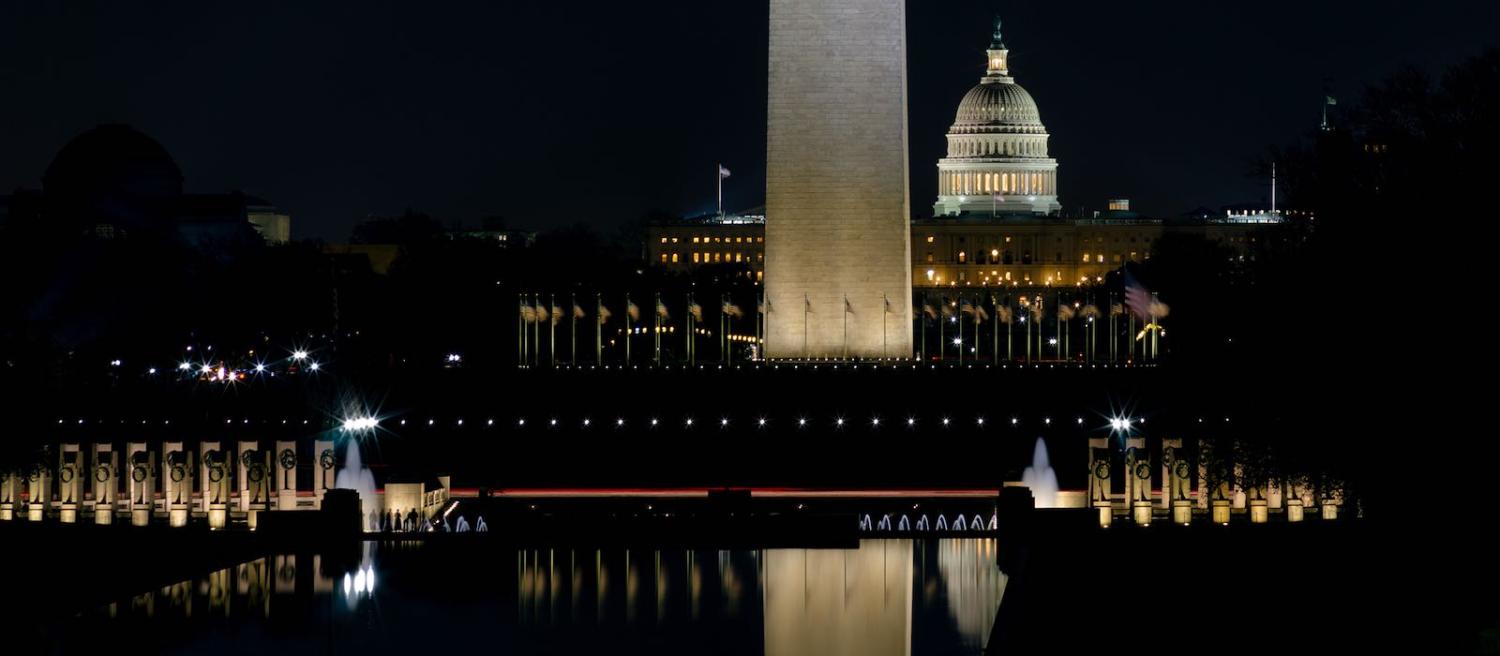In the November 2018 midterm elections, Americans voted for a Democratic House of Representatives that now possesses broad authority to investigate the Trump administration’s competence, conduct and potential corruption. Democrats appear ready to seize the political moment, despite Trump’s warning in Tuesday’s State of the Union address about the legislative pitfalls of “foolish wars, politics … [and] ridiculous partisan investigations.”
This recent uptick in legislative activity suggests the potential for meaningful congressional oversight of foreign affairs after nearly three decades of significant decline.
Further, the Republican-led Senate has publicly rejected Trump’s definition of which wars are foolish. In December, the Senate used its authority under the 1973 War Powers Resolution to call for an end to US involvement in Saudi Arabia’s war in Yemen. A few weeks later, Republicans voiced strong opposition to Trump’s announcement that US troops would be leaving Syria and that he planned to bring home half of the troops in Afghanistan. Majority Leader Mitch McConnell introduced an amendment to a broader Middle East policy bill that served as a clear rebuke of Trump’s withdrawal plans and his lack of commitment to NATO.
In these first weeks of the new House of Representatives, lawmakers passed bipartisan legislation to ban the President from using federal funds to withdraw from NATO (357-22). Bipartisan legislation has also been introduced to restrict abrupt military withdrawals from Syria and South Korea. Finally, House lawmakers introduced a resolution on US involvement in the war in Yemen that aligns with the Senate version.
This recent uptick in legislative activity suggests the potential for meaningful congressional oversight of foreign affairs after nearly three decades of significant decline. I propose three areas to watch.

The distance between the president and the Senate majority leader on foreign affairs
While Trump is still new to governing, Majority Leader McConnell is not. Over the past two years, across a range of domestic issues, McConnell avoided direct confrontation with the president through the use of subtle agenda-setting techniques that allowed him to maintain control over policy while ensuring that the president received the credit.
McConnell’s role in national security policy has been somewhat more difficult to discern, but it seems likely that he will act to protect key elements of the status quo and will allow votes on other issues such as Yemen when there is sufficient pressure. In the case of the Yemen resolution, the vote occurred as a direct result of the Trump administration’s unwillingness to hold the Saudi Crown Prince Mohammed bin Salman accountable for the murder of the journalist Jamal Khashoggi.
Former Defense Secretary Jim Mattis underscored McConnell’s foreign policy establishment credentials when he disclosed to the New York Times that:
When foreign ministers of defense or foreign leaders visited they asked who they should talk with. I always spoke about Leader McConnell, because he could reassure them.
The resonance of relevant hearings in the House
While McConnell’s appetite for bipartisan legislation will be limited, the Democratic majority will be busy organising hearings and concomitant requests for interviews, information, and witnesses.
The Committee on Oversight and Reform has, in modern times, been the place where House members have been able to uncover the facts and shape public perceptions of the administration. The new House chair, Representative Elijah Cummings, has a broad mandate but in the realm of foreign affairs, he is expected to investigate the relationship between Trump’s business interests and foreign governments.

During the George W. Bush years, Representative Henry Waxman, the senior Democrat on the committee, found clear evidence of the divergence between the intelligence community and the administration on weapons of mass destruction. After Waxman became chairman in 2007 he conducted a series of hearings that exposed missteps and misdeeds that occurred during the Iraq War reconstruction phase.
When Republicans controlled the committee during the Obama administration, they launched an extensive investigation into Hillary Clinton’s supposed cover-up of a botched response to the Benghazi attack. This investigation and others like it were light on facts but remained topical in the news cycle.
The negotiations over the National Defense Authorisation Act
The must-pass National Defense Authorization Act (NDAA) and associated appropriations represents a key opportunity for Congress to influence defence policy. Last year’s bill provided a clear snapshot of bipartisan congressional concern over Administration policies. Given the continued dissonance between the President and the intelligence community, this year’s bill will likely contain an updated version of those concerns.
However, the House version of the bill will also differ significantly from last year’s bill. The new Chairman of the House Armed Services Committee, Adam Smith, is a longtime proponent of nuclear arms control, and recently introduced a bill with Senator Elizabeth Warren to establish in law that it is the policy of the US not to use nuclear weapons first. While the outcome of that bill is uncertain, Smith will meaningfully influence nuclear weapons policy this session.
Smith indicated that he plans to eliminate money for Trump’s planned expansion of the nuclear arsenal and will pursue policies to weaken the president’s authority to use nuclear weapons. He is unlikely to receive any assistance from his Republican counterpart on Senate Armed Services, James Inhofe, but there’s precedent for effectively blocking funding for, and canceling the development of nuclear weapons systems with control of only one chamber.


